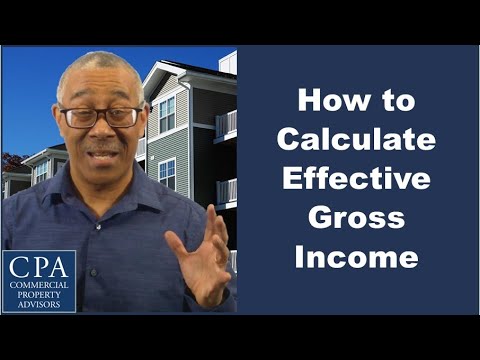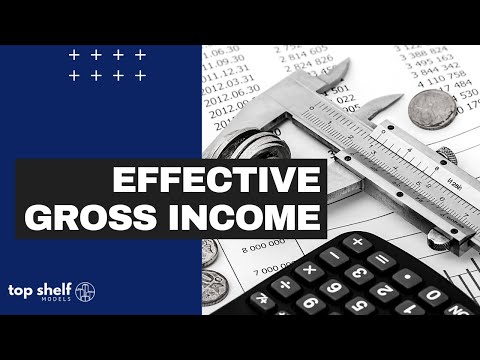Understanding Effective Gross Income in the Mortgage Process
Effective Gross Income (EGI) is the spotlight figure that can make or break your mortgage approval adventure. Simply put, it’s all the income a property racks up, minus the headache of expenses like vacancies and proverbial credit hiccups. It’s the financial selfie lenders zoom in on to figure out if you’ve got the moxie to manage a mortgage.
Let’s crack the EGI code for a sec. Picture it like the Rockefeller Christmas tree – standing tall and proud – except, this tree is made entirely of cash flow. When mortgage lenders eye that tree, they’re looking for a lush green, not a wilting one. Your EGI paints a picture of promise, and it’s the bread and butter of your loan approval sandwich.
Now, mix in rent, tenant kickbacks, and the cash from side hustles like vending machines (yep, those quarters matter), and voilà, you’ve got your EGI. Lenders are like financial detectives: they dissect your EGI to make sure you can handle the loan and keep their money safe as houses.

The Role of Effective Gross Income in Evaluating Borrower’s Financial Health
In the seesaw game of finances, EGI is the heavyweight on the credit seesaw. It’s all about balancing your debts with what you rake in. The heavier your EGI, the comfier lenders feel about giving you the keys to your dream home. It’s the Pec deck of your financial workout – flexing those EGI muscles can get you better mortgage rates and sweeter terms.
Flick through any lender’s playbook, and you’ll find the debt-to-income ratio (DTI) with EGI as its linchpin. Keep your DTI as toned as your pecs, and you’ll witness the mortgage magic unfold. Let’s not forget, a mighty EGI can even part the red tape for slicker case-by-case loans.

| **Component** | **Definition/Description** | **How it’s used in EGI Calculation** |
|---|---|---|
| Gross Potential Income (GPI) | The total possible income from all rentable space assuming 100% occupancy and no payment default. | Basis for calculating EGI. Add to other income. |
| Other Income | Income from sources other than rent, such as vending machines, laundry, parking, storage units, pet fees, etc. | Add to GPI to increase EGI. |
| Vacancy | Income lost due to unoccupied rental space or units. Calculated as a percentage of GPI or a fixed amount. | Subtract from the sum of GPI and Other Income. |
| Credit Costs | Income lost due to non-payment or late payments from tenants. Also calculated as a percentage or fixed amount. | Subtract from the sum of GPI, Other Income, and Vacancy. |
| Effective Gross Income (EGI) | The adjusted income that reflects the property’s actual earning potential after considering vacancies and credit costs. | The final amount after accounting for all components. |
How Lenders Calculate Your Effective Gross Income
If you’re clocking in a regular 9-to-5, calculating your EGI’s a walk in the park. But, freelancers and self-made hotshots, get your ducks in a row; your income needs to be as predictable as your morning joe. Adjustments to EGI can bump up your qualifying factor, with bonuses and overtimes acting like the cream on top of your espresso shot. And that irregular income or hefty year-end bonus? Lenders can be as hesitant as a first date – they’ll scrutinize it more than conversation Starters With a girl.

Improving Your Effective Gross Income for Mortgage Eligibility
Boosting your EGI isn’t some back-alley deal; it’s about playing the long game. There’s no magic wand, but a strategic game plan can pump those numbers. Financial gurus can be the wingman (or woman) in your mortgage courtship, dishing out sage advice on optimizing that EGI till it shines like a diamond.

Documentation and Verification of Effective Gross Income
Proving your EGI isn’t like telling fish tales; you need cold, hard evidence. Think tax returns, paycheck stubs, and all the nitty-gritty paperwork to prove you’re good for the money. Lenders are shifting gears to automated systems faster than you can say “chatbot is at capacity” – but even robots need something to work with. Don’t trip up here; slipshod paperwork is the fast lane to a “Nope” from lenders.

Impact of Effective Gross Income on Mortgage Approval: Real-world Examples
Like the battle stories from seasoned vets, mortgage case studies shed light on the enigma of EGI. Borrowers with wallets bulging with a high EGI often cruise through the approval process. Yet, don’t think it’s the end game; even hefty EGIs hit a wall if mishandled.
Advanced Considerations: Beyond the Basics of Effective Gross Income
2024 tax laws are as stable as a weatherman’s forecast, and economic winds shift, reshaping the EGI landscape. Lenders adapt their EGI goggles to spot the prospectors from the pretenders. In simple terms, your sweet EGI today might need to weather some economic storms tomorrow.
Best Practices for Accurately Reporting Effective Gross Income
Fudging numbers is a no-go; you might as well suggest a bank heist. Precision is your bestie when reporting EGI – with potential legal faceplants waiting for the sloppy ones. Touch base with an ace accountant, and your financial report card will be straight A’s.
Case Study Insider: Success Stories of High EGI Borrowers
High EGI borrowers are the school valedictorians; they’ve got tales to tell. Learning from the big fish can set you on your own path to mortgage nirvana. Aim high, but remember, even high EGIs have their limits – sometimes, your personal finance homework just doesn’t make the grade.
Navigating Effective Gross Income Challenges in the Mortgage Landscape of 2024
Like Columbus hitting the new world, navigating the mortgage landscape of 2024 requires a keen eye and an open mind. Tech advancements aren’t just buzzwords; they’re redefining how EGI is played out. Industry titans will tell you, the learning never stops.
Making Your Effective Gross Income Work for You in Mortgage Applications
Time to make your EGI strut its stuff on the mortgage runway. Roll up your sleeves and get cozy with lender mindsets – knowing what they’re hunting for could be your golden ticket. Low or inconsistent EGI? Don’t wave the white flag yet – solutions are as bountiful as leaves in fall.
Key Takeaways: Harnessing the Power of Your Effective Gross Income
The takeaway here could fill a book, but let’s net it out. Effective Gross Income is the MVP of your mortgage quest. Steer it, manage it, and flaunt it right, and you’ll be flipping your own home keys like a pro. Keep this guide in your back pocket, and march into that lender’s office with a confidence that screams, “Let’s turn that financial house into a home!”
From start to finish, whether you’re a freelancer with income as varied as the colors in a kaleidoscope, a straight-shooting salary earner, or somewhere in between, understanding and harnessing your EGI is key. Remember: To navigate home financially, raising the sails of your EGI will get you there with flying colors. Now go on, make your mortgage dreams a reality!
Trivia and Interesting Facts: Effective Gross Income Unpacked
When it comes to getting the green light on your mortgage application, your effective gross income is the head honcho. It’s the big cheese that lenders eyeball to figure out if you can truly afford that dream pad of yours. Now, hold onto your calculators, ’cause we’re diving into some engaging tidbits that’ll make you the life of any financially-focused party.
Do You Know How It’s Calculated?
First off, let’s talk turkey. If you think your effective gross income is just your salary with a fancy title, think again! It’s actually your salary on steroids, bulking up with various income sources, like bonuses, overtime, and yup, even that side hustle of dog walking.
But here’s a twist: Imagine you own a swanky car, and it just so happens you’re in a pinch for cash. You could potentially boost that effective gross income using a car collateral loans. That’s right, your shiny four-wheeled friend might just help you secure some extra dough that fattens up that income figure. Clever, huh?
It’s Not Just About What You Make…
Alright, so we’ve chatted about the moolah rolling in, but effective gross income also has a heart and considers what you already own. Your assets can sometimes be used to secure that much-needed cash boost. Ever heard of a “collateral loan”? Well, it’s like promising your collectible comic book collection to the lender, ensuring they trust you enough to fork over the cash. This little trick could give your income numbers a leg-up—just don’t go betting the farm!
There’s More to the Story…
Hold your horses; it gets more interesting. Property owners, listen up! Renting out your place might just be the golden goose that ups your effective gross income without breaking a sweat. Take mission rock residential as a prime example. These pros in property management could help turn that rental side gig into a legitimate income stream faster than you can say ‘lease agreement.’
When the Numbers Don’t Add Up…
Ever felt like you’re a bit too popular at times? Well, Chatgpt Is at capacity represents that problem on a digital scale. And just like folks can’t always get access to that overloaded AI, sometimes your effective gross income might not quite meet lenders’ expectations. The trick is not to put all your eggs in one income basket. Diversify those earnings, and you might just tip the scales in your favor!
Remember, folks, getting cozy with your effective gross income is like learning to juggle. It might be a bit wobbly at first, but once you’ve got the hang of it, you’ll amaze onlookers with your financial finesse. Keep these fun facts and trivia in your back pocket, and you’ll be spinning that income like a pro – ready for that mortgage approval stage with a cheeky grin.

How do you calculate effective gross income?
Well, calculating effective gross income is a bit of a juggling act with numbers. Start with the property’s potential gross rental income, and don’t forget to add in any other income – like laundry facilities or parking fees. Then, here comes the tricky part, you gotta subtract a vacancy rate estimated for the property to account for empty days. Voila! You’ve got the effective gross income – the more realistic figure that factors in real-world hiccups.
What is the definition of effective gross income?
Ah, the definition of effective gross income – it’s like gross income’s more down-to-earth cousin. Put simply, it’s the amount of money a property is expected to rake in after you’ve accounted for vacancy periods and additional income. It’s wearing gross income’s shoes but with a more realistic fit.
What is the difference between effective gross income and gross income?
Hold your horses, because effective gross income and gross income are two peas in a pod but not quite identical twins. Gross income is like your dream number – the max you’d earn if all rental units were full all the time plus any extra candy, like parking fees or vending machines. Effective gross income is like a reality check; it nudges you and says, “Remember the times units are empty?” Yep, it subtracts vacancy losses from the dream number to give you a figure you can bank on.
What does gross effective mean?
“Gross effective” sounds like you’re double-dipping in financial jargon soup, right? But, really, it’s just a mix-up of “effective gross income,” which is that more realistic take on how much moolah a rental property will pull in, factoring in the not-so-fun times when some units are doing nothing but collecting dust.
What is an example of a gross income?
An example of gross income? Picture this: You’re a hotshot freelancer. Every dime you charge your clients – before the tax monster or any other deductions have their way – that’s your gross income. It’s like looking at your paycheck in the mirror before it slims down.
How do I calculate my gross monthly income?
To calculate your gross monthly income, grab your calculator and channel your inner math whiz. If you’re on a salary, divide your annual dough by 12. Hourly wage earners, you multiply your rate by the hours on your weekly grind and then by 52 (for weeks in a year), and split that number by 12. Easy peasy.
What are the two types of gross income?
Talking about types of gross income, we’ve got two contenders in the ring: individual and business. For folks, it’s money earned from jobs, investments, and all that jazz. For businesses, think sales revenue before expenses throw a sucker punch. It’s like the business world’s version of “before and after” pictures.
Why is my gross income higher than my salary?
Why’s your gross income flexing bigger numbers than your salary? Well, because it’s the whole enchilada. It adds up everything – your salary, overtime, bonuses, and any side hustles – before taxes and deductions take their slice of the pie. It’s like your financial selfie with a flattering filter.
Which is better gross or net income?
Which is better, gross or net income? Depends on which glasses you’re looking through. Gross income is your money in a superhero cape, before taxes tie it down. Net income is the paycheck that lands in your pocket, hero outfit off. For bragging? Gross looks beefier. But for spending? Net’s what you get to take to the races.
Is annual gross income monthly or yearly?
The term “annual gross income” is like a calendar’s best friend, because it’s all about yearly earnings. It tallies up what you make in a year before the taxman cometh. Don’t let “annual” trip you up – it’s the long haul, 12 months’ worth of your financial story.
What is the effective gross income quizlet?
When it comes to the effective gross income quizlet situation, it’s like your quick-study guide. Imagine flashcards buzzing with info on how to calculate and understand the effective gross income of a property. It’s a shortcut to ace that part of the exam, no sweat.
What is the effective gross income quizlet?
The definition of gross income according to the IRS, in plain old talk, is pretty much everything you earn – walking that high-wire before anything like taxes or retirement contributions are taken out. It’s all your dough, no crumbs missing.
What is the definition of gross income according to the IRS?
The 30 percent rule? It’s like a financial yardstick to keep housing costs in check. Define gross income as all the cash you make before taxes, and this rule says, “Hey, only spend up to 30% of that on where you lay your head.” It’s like a budgeting guardian angel watching over your wallet.



